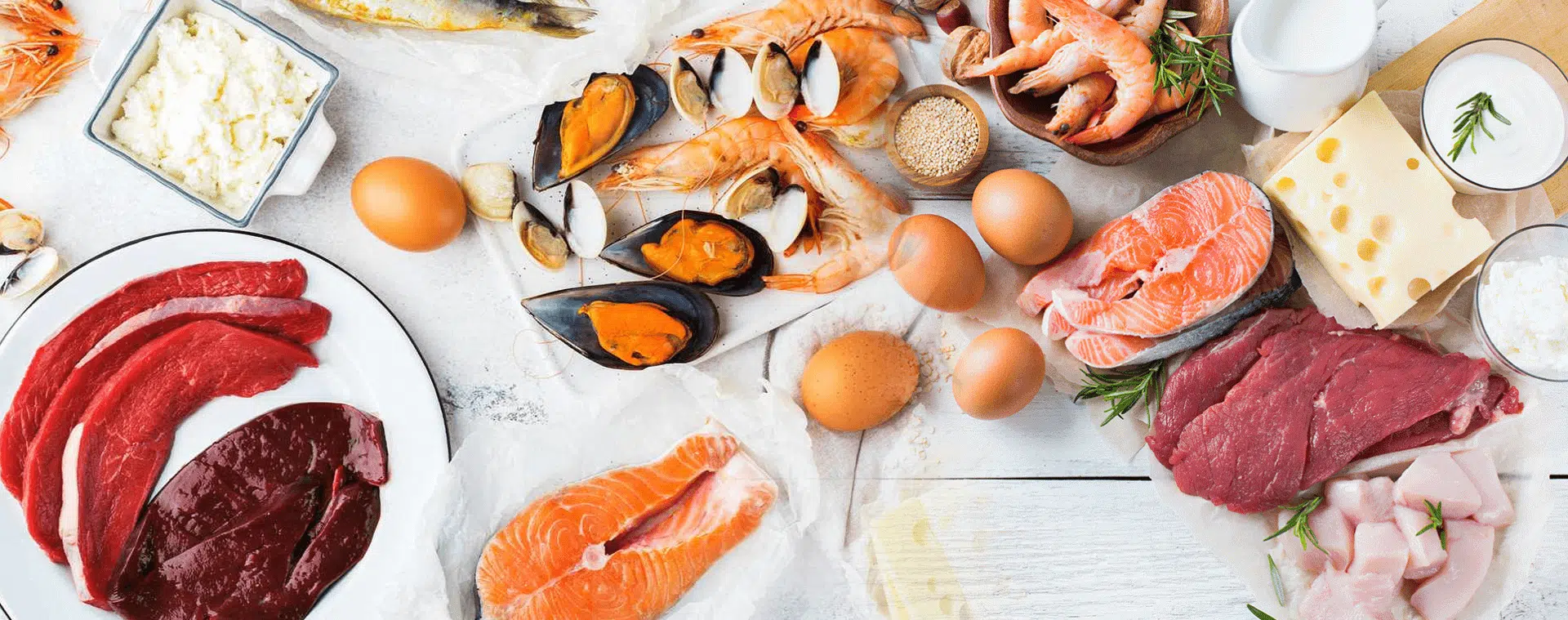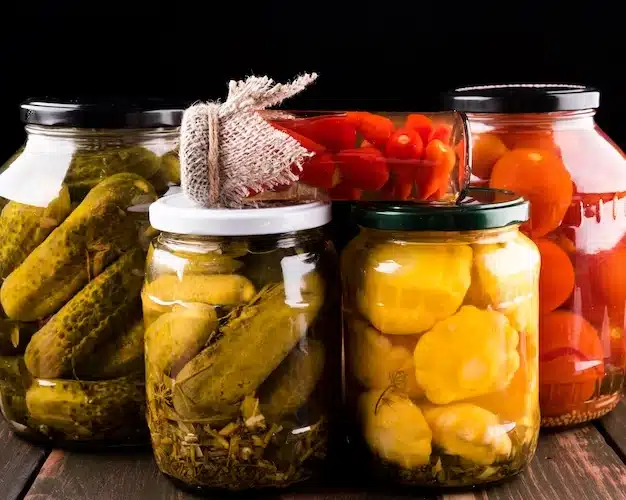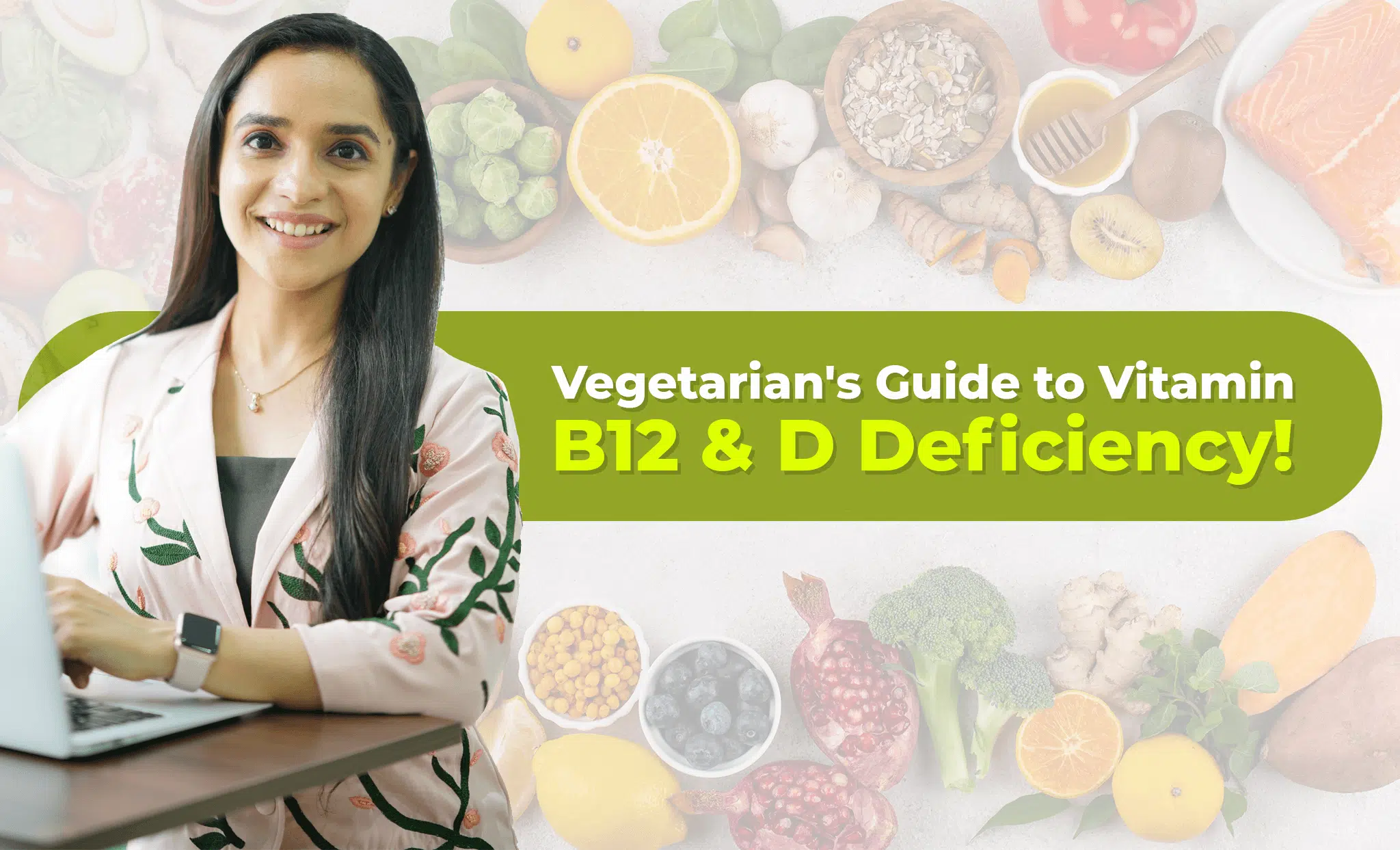Are you concerned about Vitamin B12 and Vitamin D deficiency on a Vegetarian diet?
Non-vegetarian foods provide some of the richest sources of essential nutrients.
Often, when following a Vegetarian diet, concerns arise regarding the deficiency of key vitamins like B12 and D.
Although Supplements might be necessary, In Indian dietary routines, there are strategies to naturally aid the recovery of these nutrients, reducing the deficiency worry. If you need personalized guidance, consider consulting the best dietitian online for an online diet plan.
You know, sometimes it’s worth slowing down to truly grasp the how and why, the reason and logic behind anything.
In our hustle and bustle, we often skip over these details, but trust me, understanding Why vitamins are not absorbed and What can be done makes a whole lot of difference. This video will shed light on the underlying causes of such deficiencies and offer valuable insights on prevention.

The Science behind Vitamin B12 Absorption:
Vitamin B12, also known as Cobalamin, it’s like a tag team with cobalt, breaking down proteins. This process depends on the presence of Pepsin, a digestive enzyme released from the gut lining.
For that, we need the Intrinsic Factor. It’s like the guide that helps create a community of good bacteria in your gut, essential for Vitamin B12 absorption.
We need to consider two things for that.
Prioritize gut health
For better absorption, our gut should be healthy.
However, things can get difficult, if you’re dealing with gastric issues.
If your stomach’s pH isn’t within the 1-3 range (yes, Only The stomach and Urine have acidic pH while the rest of your body is alkaline), it can pose problems.
Imagine the stomach as your body’s gatekeeper, and the pH as the secret code. Ideally, the gate should be acidic (pH 1-3) to let in the good stuff, like digestive enzymes that release Vitamin B12 from your food.
But when you rely too much on Antacids or Antibiotics, the gate doesn’t work as it should. The pH gets disturbed, enzymes don’t get released, and boom – No Vitamin B12 absorption.
So, how can we mend this situation?
One way is by nurturing a healthy gut.
When you keep your gut happy – free from issues like Acidity, Bloating, and Constipation – you’re setting the stage for Vitamin B12 absorption.
The more Antacids you use, the more you mess with your stomach’s pH, hindering Vitamin B12 absorption and potentially leading to deficiency.
Excessive consumption of Antibiotics can sometimes lead to a decrease in Vitamin B1. To counter this, when you’re on an antibiotic course, consider taking Vitamin B complex supplements. This maintains a healthy balance of gut bacteria, ensures proper nutrition absorption, and helps prevent diarrhea.
Maintain the gut health.
Intrinsic factors help good microbes in your body but that needs to be maintained. They play a part in making Vitamin B12, but sometimes it’s not enough for the whole body’s needs.
To make sure you’re covered, consider including these 6 Vegetarian dietary sources of Vitamin B12 especially during lunch as mentioned below.
And if your Vitamin B12 levels are too low, Supplements could be good initially.
But talk to your doctor first, because not all supplements are the same. Some types, like Methyl cobalamin, work better with your stomach’s acid and get absorbed well. Others like those that contain cyanide-forming salts – can block Vitamin B12 absorption.
So, it’s a good idea to discuss this with your doctor.

6 Vegetarian Sources for Vitamin B12:
1. Organic Milk and Dairy:
While we often skip dairy due to a lack of organic options, A2 Cow’s Milk, and its products such as curd, lassi, and paneer, are loaded with vitamin B12. The Lactic acid in this milk type supports Vitamin B12.
If you have hormonal issues or autoimmune concerns, consult a dietitian about dairy inclusion.
2. Fermented Foods:
Include Fermented foods like Idli, Dhokla, Handavo, Kefir, Kimchi, and Pickles into your diet to aid Vitamin B12 absorption. Even pickles, especially during lunch, can boost Vitamin B12 absorption.
3. Sprouts:
Sprouted dals and lentils offer not only Vitamin B12 but also Vitamin C, enhancing absorption. Add Sprouts to your diet 2-3 times a week. If eating them as raw sprouts feel difficult, try Sautéing or Steaming.
4. Green Leafy Vegetables, Moringa powder:
[made from drumstick leaves] and Wheatgrass are great sources of Vitamin B12.
Wheat contains gluten whereas Wheatgrass juice is free from gluten, making it a good source of Vit B12. Consuming Wheatgrass juice before breakfast improves Vitamin b12 absorption.
Whether it’s Moringa powder or leaves, these water-soluble wonders can be added to dal, flour, or water and consumed.
5. Legumes:
Black grams [Kala chana] and Chickpeas provide a boost of Vitamin B12 add them to your diet at least once a week. In an Indian household, normally Kala Chana is opted for every Saturday at Lunch.
6. Root Vegetables:
Beet, arabi, and carrot, growing underground, hold cobalt from the soil, making them a wonderful Vitamin B12 source, but excessive washing wipes off essential nutrients.
In the past, we used to encourage kids to play in the soil because it offered beneficial microbes.
Do consider adding these wonderful sources of Vitamin B12 to your dietary routine.

Signs and Symptoms of Vitamin B12 Deficiency:
- Tingling
- Numbness
- Fatigue
- Forgetfulness/loss of memory (as it is linked to blood’s red blood cells, neuron system, and DNA repair)
- Irritability/ Anger
- Anxiety or Depressed Mood
Now, Let’s talk about sources of Vitamin D
5 Natural Sources of Vitamin D:
1. Liver in the active zone:
To maximize Vitamin D absorption, ensure your liver is in its active state. Consider having an Early dinner,allowing the Liver to relax and repair at night, promoting better absorption.
2. Fat-Soluble Nutrients:
Add fat-soluble vitamins like Flax seeds, Pumpkin seeds, and Ghee into your diet. These help better Vitamin D absorption.
3. Sun Gazing:
Spend 10 minutes in Sunlight during sunrise or sunset. This simple practice of embracing the Sun with the naked eye aids in improved Vitamin D absorption as well as multiple benefits.
4. Mushrooms:
One of the best sources of Vitamin D. Consider sun-drying them to harness their benefit and explore the availability of medicinal mushrooms.
5. Sleep Well:
Enhance your sleep hygiene. Increased sun exposure during the day enhances sleep quality, facilitating body repair and better absorption of fat-soluble vitamins.
By embracing these strategies, you can effectively tap into valuable sources of Vitamin D for overall well-being without feeling the need for non-vegetarian sources.
Signs and Symptoms of Vitamin D Deficiency:
Low Vitamin D levels can show up as
- Fatigue,
- Bone pain,
- Muscle weakness, and
- Compromised immune function.
Key Takeaways:
Nowadays, Vitamin B12 and Vitamin D deficiencies are common, notably among the urban population – nearly 50 percent, especially among Vegetarians. Reports tend to be mostly indicative of these vitamin deficiencies.
Don’t overlook this issue.
By incorporating these Vegetarian and natural sources into your routine, you can effectively refill the depleted levels of these essential Vitamins B12 and D.
But remember, it’s more than just a Diet. Lifestyle Modification and a Holistic approach to health play an important role.
Let’s act today for a healthier tomorrow.
Your well-being awaits!
Work on it!

